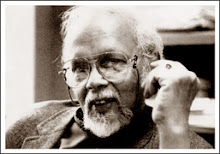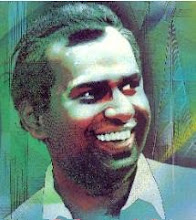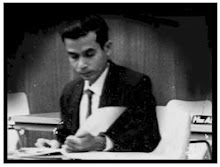'An actor is one who is made and not born' should be the motto of Sinhala theatre Subject matter of realistic conversational original Plays in 1960's
(This is a translation of a critique by Prof. Ariya Rajakaruna. He served as the Head of the Department of Sinhala of the University of Peradeniya. He is currently a visiting lecturer attached to the Department of Fine Arts and Sinhala. This is the only comprehensive review written on any State Sinhala Drama Festival held during the past five decades. This review was first published in 1967.This critique has been translated for the first time)
Continued from last week
|
|
|
|
Some others rejected the introduction of Sinhala dramas through adaptations and translations of Western style drama to Sinhala theatre. They appreciated the dramas with songs and instrumental music as indigenous dramas.
Critic of drama should not be a person who has a grudge on some traditions of drama. He should be able to understand the specific needs of theatre in eastern nations. High quality dramas should not be jettisoned merely because they came from America or Russia.
Some critics were ignorant of on what basis dramas should be appreciated. There are many instances where success or failure of a drama is judged unjustifiably.
Some who completely jettisoned "Hele Nagga Don Putha "and " Ahasmaliga" as failures, considered "Vesmuna" as a successful production. What is the reason for such a judgment? It seems that all three dramas have been adapted to suit Sri Lankan life. On this count, "Vesmuna" cannot be considered superior to the other two dramas.
| |
Considering the needs of the Sinhala theatre, these dramas have positive as well as negative characteristics. Therefore, it is not fitting to describe these dramas as total failures or outstanding successes. Critics' judgments reveal that they have very little knowledge of the requirements of Sinhala theatre.
There are few critics who made their criticisms considering stage decorations, costume, make-up, lighting, acting and the plot of the drama in arriving at conclusions. Some do not consider, at all, of the attempts made to attract audience by using techniques of theatre.
As those critics had little understanding on Sinhala language, they often came to wrong conclusions with regard to the use of language on the stage. Some, who have no understanding on the history of contemporary Sinhala theatre, expressed ill-informed opinion on the importance of certain productions.
Some appreciated only the dramas that arouse feelings. Most criticism lost discipline. On most occasions, misleading and provocative headlines have been used for drama criticisms. Some articles revealed the anger of the critic after the performance.
There are some criticisms with the sole intention of attacking the dramatists. Some spoke on things that they are ignorant of.
If a drama becomes successful it was over-acclaimed and denounced when a drama became a failure. The objective of the critics should be to highlight the shortcomings of productions in a spirit to enlighten the readers and to encourage the dramatists to overcome them. Some critics expressed pertinent and progressive views. They help to increase audience's interest in theatre and be an aid to clearly understand the production.
What are the criteria adapted in criticizing Sinhala drama? All the productions presented for the festival can be jettisoned as they are not high quality productions such as Maname and Sinha Bahu.
What is the benefit this will bring Sinhala theatre? Talents shown by Sinhala dramatists on creative dramas are limited. However, their dramas with a lot of weakness would make a certain contribution to the development of future Sinhala theatre. What happened at their hand is only paved the way for the emergence of talented dramatists. A developed theatre can be built through the weaknesses of the present dramatists.
Eleven drama societies took part in the festival. The organizations Group 63, Kalapela Sankruthika Sangamaya, Naatya Chakra, Navaranga Samuluwa, Janaranga Shraniya, Sinhala Sangeeta Sangamaya, Tholosdena, Ape Kattiya, Deshiya Sankrutika Mandalaya, Taruna Sankruthika Sanvidanaya and Rangamandalaya have presented dramas for the festival.
In addition, Henry Jayasena, J.H Jayewardene, Sunanda Mahendra de Mel, Ameradasa Jayatunga and Chandrasena Dassanayake, as individuals, presented dramas. It seems though the associations differ, actors and actresses as well as technical staff are often the same persons.
A person who portrays a character on behalf of one drama associated, acted as a director for another. This would not augur well for the development of drama.
The 'Programme' of the festival shows that still it has not been decided on the proper usage for describing technical aspects of drama. Usages such as " Stage plan' Stage decorations, theatre plan, stage creation, theatre decoration, stage beautification' have been utilized to describe same concept.
Some use "Make up and costume design" to bring in the same meaning. Some use "Make up " for "costume design" and meant only for 'Dress making'. Some dramas, use 'Music Composition' and some others "Music Direction".
Even some are 'produced' while others were "formed". It is imperative that consensus should be reached on the vocabulary use to describe technical aspects of the drama.



































No comments:
Post a Comment